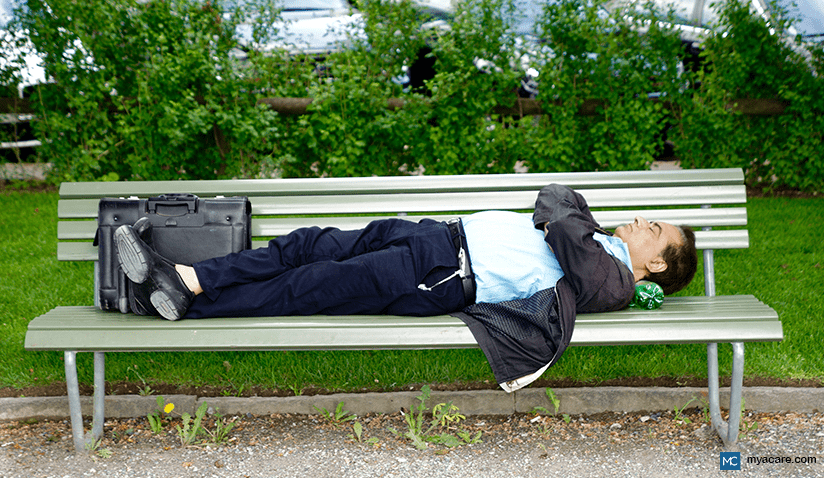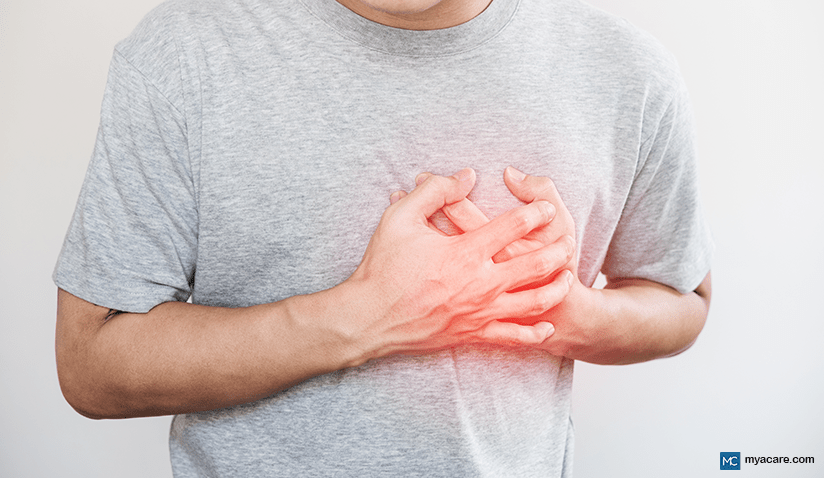PULLING ALL-NIGHTERS? LEARN WHAT SLEEP DEPRIVATION CAN DO TO YOUR BODY

Sleep deprivation is a general term to describe a state caused by inadequate quantity or quality of sleep, including voluntary or involuntary sleeplessness and circadian rhythm sleep disorders.
March 15th is World Sleep Day. This should remind people that sleep is essential to life, in the same way, food and water is. However, for many people, sleep is the most underrated and neglected health habit. In fact, this is a worldwide problem, it's estimated that two thirds of adults around the world aren't getting enough sleep. New data from Sleep Cycle has now shown that no country in the world manages to achieve 8 hours of sleep on a regular basis.
The Importance of Sleep
As per the National Sleep Foundation, sleep requirements range varies with the age. For a body to function properly and stay healthy, a toddler should sleep for 11-14 hours, teenagers for 8-10 hours and adults must aim for 7-9 hours of their sleep.
Adequate sleep not only helps the body rest physically but it also plays a pivotal role in strengthening and developing our mental health. It helps to re energize and repairs the body’s cells, levels hormones, thereby preparing body for the next day. When asleep, a person’s brain sorts and processes information that has been learnt throughout the day, preserves good memories.
What your body goes through the 14-16 hours of working, studying, running errands, socializing and so on, the physical and mental exertion wears you down, and to be able to remain fit and active to continue to follow the routine the next day, body needs adequate sleep.
Sleep Deprivation and Its Hazardous Side Effects
Sleep deprivation has various problems. Here is a list of the few issues that individuals that don’t get enough sleep can have.
- Sleep deprivation can cause accidents
- Lack of sleep impairs alertness and concentration making it harder to learn properly
- Long term sleep deprivation can lead to health problems such as heart disease, high blood pressure, stroke and diabetes
- Symptoms of depression may occur
- Premature ageing of skin
- Memory Loss
- Weight gain
- Cause poor judgment
Causes of Sleep Deprivation and Ways To Combat It
There can be various reasons why people suffer from lack of sleep. One of the most famous advocates for getting enough sleep is Arianna Huffington. In an interview she discusses sleep-macho culture that equates sleep deprivation with dedication and hard work and values quantity of work over quality. We live in a world where we put a premium on ‘being busy.’ This culture is starting to change, with many employers encouraging wellness programs to help employees with problems like sleep deprivation. However, much awareness is required.
At times sleep deprivation is due to habits and choices by individuals who stay up late to work, study, socialize, or watch TV. However, in some cases it could be due to increased responsibilities that may require working long hours or multiple jobs, work and thus have little time to rest. With this comes stress and hence, insomnia.
Other causes could be:
- Illness or health conditions such as sleep apnea
- People in jobs which may cause disruptive sleep cycles for examples, night shift workers, pilots and cabin crew
- Consuming excessive amounts of caffeine or cigarettes
- Parents of babies and young children that may wake up multiple times during the night
Most times there seem to be simple solutions that individuals can find for themselves to stop sleep deprivation. For example, going to bed earlier, avoiding caffeine before bedtime, quitting smoking, improving your sleeping environment, reducing distractions such as TV or computer, or simply taking time for self-care through learning meditation, and yoga to relax.
Sometimes, however, it is not always easy to battle it alone. If you or your loved one is facing constant insomnia, it may help talk to your doctor. Many hospitals have specialized sleep centers that observe individuals sleep patterns overnight. This may help with problems such as sleep apnea which may need more specialized treatment.
To find Healthcare Providers worldwide please use the Mya Care Search Engine.
References:
- https://www.businessinsider.com/how-much-sleep-is-enough-health-risks-dangers-of-sleep-deprivation-2017-11
- https://www.thegoodbody.com/sleep-statistics/
- https://www.sleepcycle.com/
- http://www.futureofpersonalhealth.com/advocacy/arianna-huffington-stresses-the-importance-of-a-good-nights-sleep
- https://www.betterhealth.vic.gov.au/health/conditionsandtreatments/sleep-deprivation
- https://science.howstuffworks.com/life/inside-the-mind/human-brain/sleep-labs1.htm
- https://www.ncbi.nlm.nih.gov/pmc/articles/PMC4849507/
- https://www.ncbi.nlm.nih.gov/books/NBK19961/
- https://www.sleepfoundation.org/sleep-deprivation#symptoms-3
- https://www.nhlbi.nih.gov/files/docs/public/sleep/healthy_sleep.pdf
Disclaimer: Please note that Mya Care does not provide medical advice, diagnosis, or treatment. The information provided is not intended to replace the care or advice of a qualified health care professional. The views expressed are personal views of the author and do not necessarily reflect the opinion of Mya Care. Always consult your doctor for all diagnoses, treatments, and cures for any diseases or conditions, as well as before changing your health care regimen. Do not reproduce, copy, reformat, publish, distribute, upload, post, transmit, transfer in any manner or sell any of the materials in this blog without prior written permission from myacare.com.



